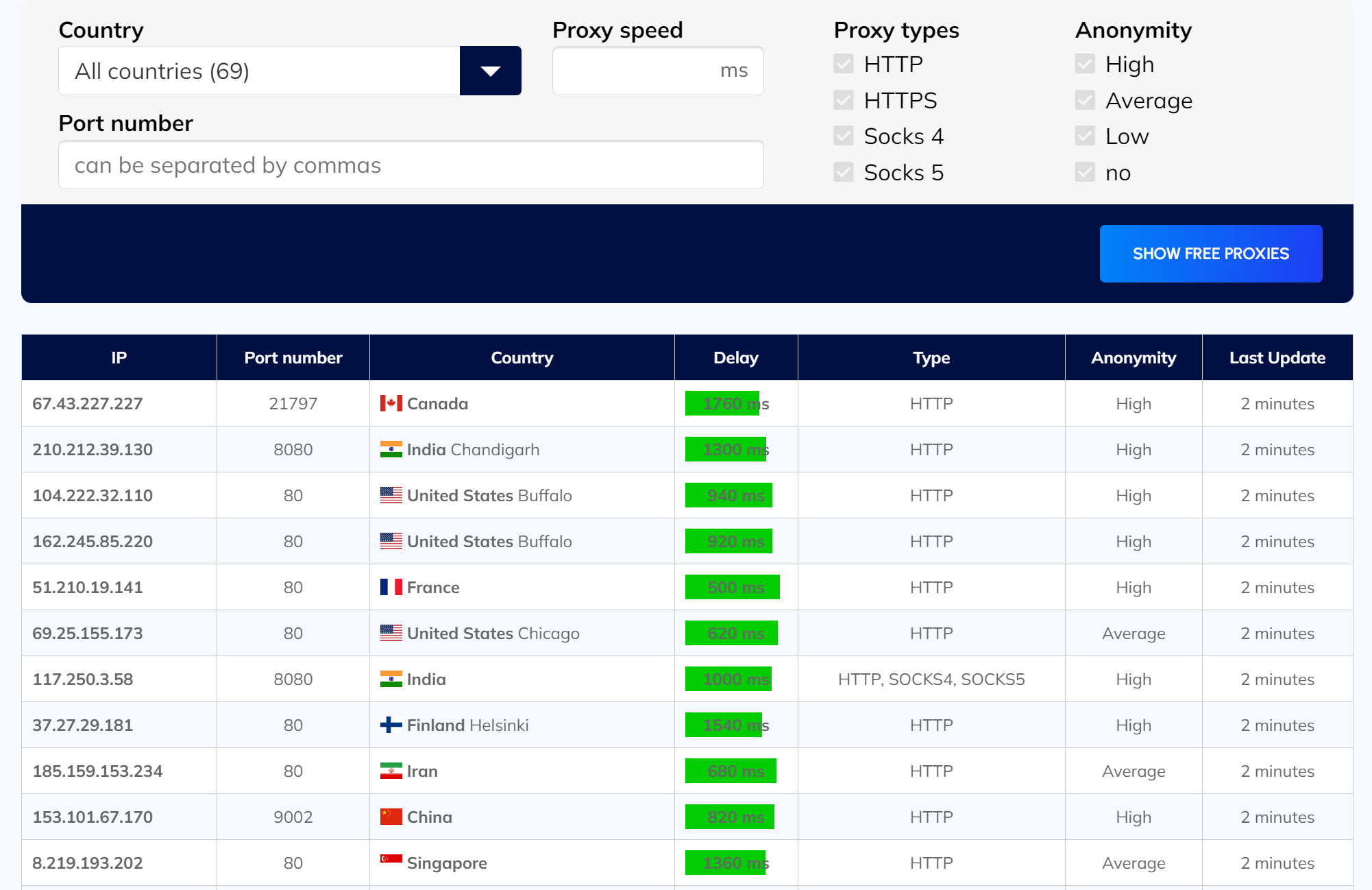
All proxy servers in the list are continuously monitored and sorted based on various parameters.
Here are the different types of proxies:
- HTTP: These are standard proxies that support HTTP requests. They can be used to browse websites and download files using the HTTP protocol.
- HTTPS: Also known as SSL-enabled proxy servers, they allow you to access HTTPS sites securely. They can also be used with specialized programs that support different protocols, such as SOCKS proxy servers.
- Socks 4: These proxies support the SOCKS protocol version 4. They enable connections to any address and port using the TCP/IP protocol.
- Socks 5: These proxies include all the features of version 4, with additional capabilities such as UDP protocol support, DNS requests via a proxy, and the ability to open ports for incoming connections using the BIND method.
Proxy anonymity is a crucial parameter that determines whether your real IP address is hidden and whether the destination server can detect your proxy usage.
Here are the different levels of anonymity explained:
- No Anonymity: The remote server knows both your IP address and that you are using a proxy.
- Low Anonymity: The remote server does not know your IP address but is aware that you are using a proxy.
- Moderate Anonymity: The remote server knows that you are using a proxy and might think it knows your IP, but it is actually not your actual IP (usually seen with multi-network proxies that show the incoming interface as REMOTE_ADDR).
- High Anonymity: The remote server has no knowledge of your IP address and has no direct evidence of you using a proxy. These are anonymous proxies.
The speed of the proxy server is indicated in milliseconds and is not a ping measurement. It represents how quickly a small text file can be uploaded via the proxy. You can easily gauge the speed by observing the color of the stripe: green indicates fast speed, while red indicates slower speed.
Ping may vary, so if it's an important factor for you, it is advisable to check it directly from the device where the proxy will be used.
These free proxies can be used with software applications that support proxy usage, such as web browsers. Popular use cases for proxies include hiding your real IP address, concealing your geographical location, and accessing blocked websites.
If you are looking to purchase fast and reliable proxies located in data centers, supporting both HTTP and SOCKS protocols, you can follow the links below to buy proxies for specific countries:
- Buy China Proxies
- Buy US Proxies
- Buy German Proxies
- Buy UK Proxies
- Buy Russian Proxies
- Buy French Proxies
On the aforementioned pages, you can find and purchase high-quality proxy servers that offer exceptional speed and performance.
https://proxycompass.com/free-proxy/
Keine Kommentare:
Kommentar veröffentlichen